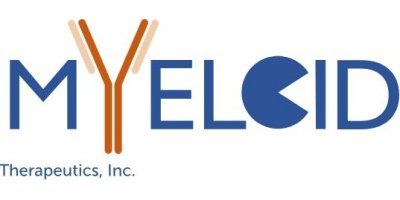

Myeloid Therapeutics products
Multidisciplinary Technologies
Myeloid - In Vivo Myeloid Programming with mRNA
Myeloid’s novel in vivo engineering platform specifically targets and activates myeloid cells to elicit broader anti-tumor adaptive immunity. Through this approach, Myeloid demonstrates that delivery of lipid-nanoparticles (LNPs) encapsulating mRNA results in uptake and selective expression by myeloid cells in vivo, leading to potent tumor killing in multiple cold tumor models. These data demonstrate the potential for Myeloid’s technology to program cells directly in vivo.
mRNA Cell Therapy Technology
Myeloid is focused on advancing its ATAK CAR monocytes, which are myeloid cells with innate immune receptor-inspired CARs to recognize and kill cancer. Additionally, Myeloid has streamlined manufacturing for its ATAK cell therapy candidates through a rapid, single-day cell process. This method provides significant advantages to the patient, contract development, and manufacturing organizations (CDMO) over allogeneic approaches.
Next-Generation Delivery and Editing Technology
Retrotransposons are genetic elements that can replicate through reverse transcription of an RNA transposition intermediate. They contribute to structural changes and, more importantly, to gene regulation. Our proprietary RNA-based, retrotransposon-mediated gene-insertion technology (CREATE) has applications across gene editing and delivery.
Transformational Product Profiles
Myeloid - In Vivo Programming Pipeline
Emerging from the Company’s proprietary ATAK™ CAR receptor library, Myeloid’s novel in vivo engineering platform specifically targets and activates myeloid cells to elicit broader anti-tumor adaptive immunity. Through this approach, Myeloid demonstrates that delivery of lipid-nanoparticles (LNPs) encapsulating mRNA results in uptake and selective expression by myeloid cells in vivo, leading to potent tumor killing in multiple cold tumor models.
Myeloid - Therapeutic Modality Targeting Hepatocellular Carcinoma (HCC)
MT-303 represents the first candidate in a new therapeutic modality targeting hepatocellular carcinoma (HCC). Liver cancer is a prevalent and challenging cancer with over 850,000 new cases diagnosed globally each year, and the third leading cause of cancer death. The clinical candidate is a first-in-class, GPC3-FcA-LNP, with a strong preclinical profile supporting its advance into this first-in-human trial. GPC3 is overexpressed in most human hepatocellular carcinomas, with limited expression in corresponding normal tissues. Increased GPC3 expression has been linked to tumor growth.



